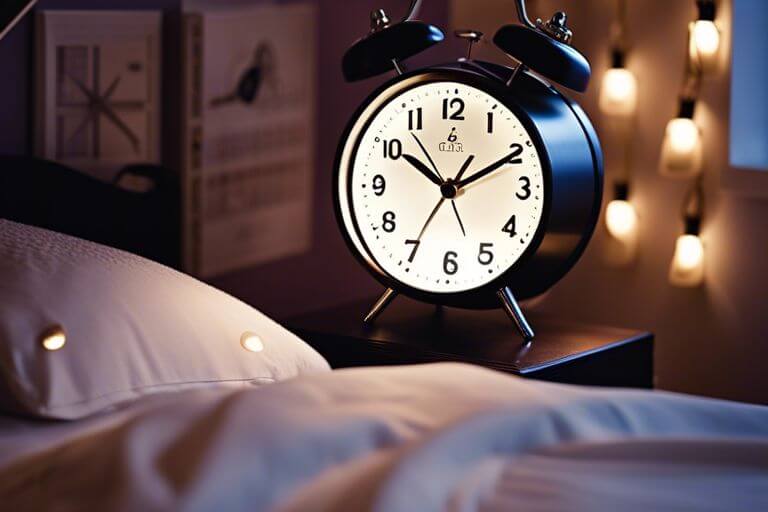Building a Better Sleep Routine – Effective Habits for Insomnia Relief
Just as SUVs dominate the American landscape, insomnia can dominate our nights, affecting our overall well-being. Struggling to fall asleep or stay asleep can have serious consequences on our health and quality of life. That’s why it’s crucial to establish effective habits to relieve insomnia and promote a better sleep routine. In this blog post, we’ll discuss some key strategies you can implement to improve your sleep and combat insomnia, helping you wake up feeling refreshed and ready to tackle the day.
The Foundation of a Sleep Routine
Regular Sleep Schedule
The key to building a better sleep routine is consistency. The body’s internal clock, also known as the circadian rhythm, thrives on predictability. Going to bed and waking up at the same time every day helps regulate this rhythm, making it easier to fall asleep and wake up refreshed. It’s important to stick to your schedule even on weekends to ensure your body gets into a healthy sleep pattern.
Ideal Sleep Environment
Foundation of a good sleep routine lies in creating an ideal sleep environment. This includes a comfortable mattress and pillows, a cool room temperature, and minimal noise and light disturbances. Your bedroom should be a sanctuary for sleep, free of distractions that can disrupt your rest. Invest in quality bedding and curtains to create a cozy atmosphere that promotes relaxation.
It is also recommended to limit screen time before bed, as the blue light emitted by devices can interfere with the production of melatonin, the hormone that regulates sleep. Creating a relaxing bedtime routine, such as reading a book or taking a warm bath, can signal to your body that it’s time to wind down and prepare for sleep.
Daytime Habits That Enhance Sleep Quality
Diet and Nutrition
It is imperative to pay attention to your diet and nutrition throughout the day to support a healthy sleep routine. Avoid consuming large meals close to bedtime as this can lead to discomfort and disrupt your sleep. Instead, opt for light, easy-to-digest snacks before bed if you feel hungry. Additionally, limit caffeine and alcohol intake, especially in the evening, as they can interfere with your sleep cycles.
Exercise and Physical Activity
Exercise plays a crucial role in improving sleep quality. On top of promoting overall health, regular physical activity can help you fall asleep faster and enjoy deeper sleep. Aim for at least 30 minutes of moderate exercise most days of the week, but avoid vigorous workouts close to bedtime, as they can be stimulating and disrupt your sleep patterns.
A consistent exercise routine can help regulate your circadian rhythm, making it easier to fall asleep and wake up at the same time each day. Additionally, physical activity can reduce stress and anxiety levels, which are common factors contributing to insomnia.
Pre-Bedtime Rituals for Better Sleep
Relaxation Techniques
For many individuals struggling with insomnia, incorporating relaxation techniques into their pre-bedtime rituals can greatly improve their ability to fall asleep and stay asleep. Practicing deep breathing exercises, meditation, or progressive muscle relaxation can help calm the mind and body, reducing anxiety and stress levels that often interfere with sleep. These techniques signal to the body that it’s time to wind down and prepare for rest, making it easier to drift off into a peaceful slumber.
Electronic Devices and Sleep Hygiene
PreBedtime, it is crucial to limit exposure to electronic devices such as smartphones, tablets, and computers, as the blue light emitted by these screens can suppress the production of melatonin, the hormone responsible for regulating sleep-wake cycles. Creating a technology-free zone in the bedroom and engaging in activities like reading a book or taking a warm bath can promote relaxation and signal to the brain that it’s time for sleep.
It is vital to establish a bedtime routine that does not involve screens at least an hour before bed to allow the body to naturally prepare for sleep. By implementing good sleep hygiene practices, such as avoiding stimulating activities and dimming the lights, individuals can create an environment conducive to restful sleep.
Overcoming Common Sleep Challenges
Dealing with Night-Time Anxiety
To effectively address night-time anxiety, it’s crucial to establish a calming pre-sleep routine. Engage in relaxation techniques such as deep breathing or meditation to quiet the mind before bedtime. Create a peaceful sleep environment by dimming lights and avoiding stimulating activities. Additionally, journaling your thoughts and worries can help alleviate anxiety and promote a sense of calm before sleep.
Managing Environmental Disruptions
To combat environmental disruptions that may interfere with your sleep, it’s important to create a sleep-conducive setting. Invest in a comfortable mattress and pillows to promote better sleep quality. Keep your bedroom cool, dark, and quiet to enhance your sleep environment. Minimize distractions such as electronic devices and consider using white noise machines or earplugs if noise is a concern.
Environmental factors play a significant role in sleep quality, so it’s crucial to optimize your sleep environment for better rest. Consider blackout curtains to block out light, and maintain a consistent sleep schedule to regulate your body’s natural sleep-wake cycle. By addressing environmental disruptions, you can create a sanctuary that promotes restful and rejuvenating sleep.
To wrap up
Upon reflecting on the importance of building a better sleep routine and implementing effective habits for insomnia relief, it is evident that establishing healthy sleep patterns is crucial for overall well-being. By practicing consistent bedtime rituals, creating a comfortable sleep environment, and incorporating relaxation techniques, individuals can significantly improve their quality of sleep and combat insomnia. It is imperative to prioritize sleep and make adjustments to our daily routines to ensure adequate rest. By committing to these positive habits, individuals can experience the benefits of a restful night’s sleep and wake up feeling refreshed and rejuvenated each day. Be mindful of, investing in your sleep is investing in your health.

